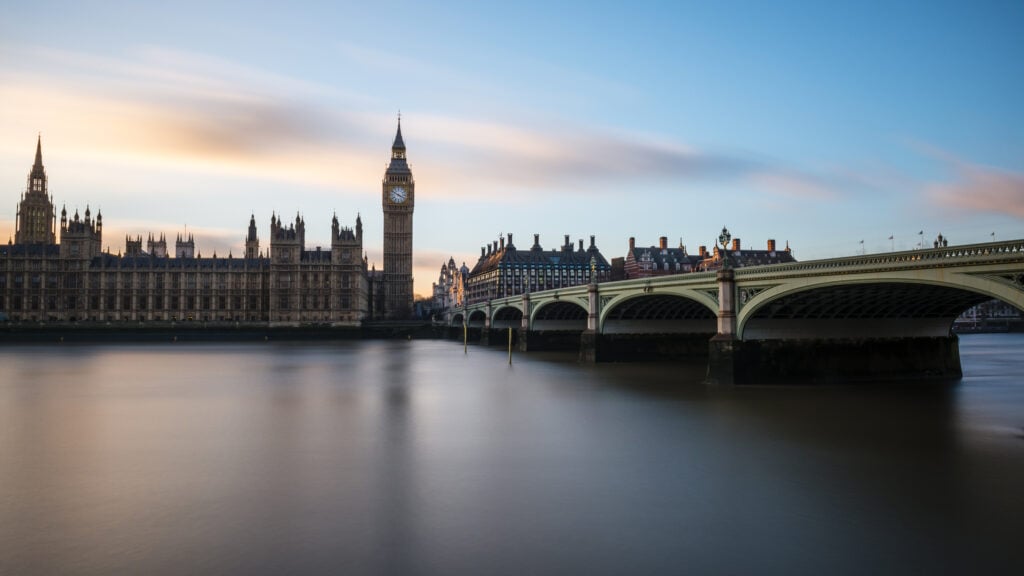Activist legal group ClientEarth is suing the UK Government for failing to present an adequate net zero strategy.
Released in October 2021, the strategy lays out plans for reaching net zero by the middle of the century, and included new EV charging funding, a review of the frequency of Contracts for Difference auctions and green finance and innovation commitments.
But ClientEarth has argued that it failed to set out credible policies to tackle climate change, and as such breached the government’s legal obligations under the Climate Change Act. The act charges the government with demonstrating that its policies will reduce emissions and meet the legally binding carbon budgets.
The charity’s claim thus relies on sections 13 and 14 of the Climate Change Act 2008, due to the ‘baseline’ projections within the Net Zero Strategy that show emissions during the sixth carbon budget period could be more than double the level required to meet the budget.
The strategy is therefore insufficient to meet these carbon budgets, the charity claims, and relies on speculative and unproven technologies while overlooking near-term solutions.
These include those suggested by the Climate Change Committee (CCC), such as plans to roll out low carbon heating and home insulation. The government has committed to rolling out a minimum of 600,000 heat pumps a year by 2028, while the CCC has suggested 900,000.
“It’s not enough for the UK Government simply to have a net zero strategy, it needs to include real-world policies that ensure it succeeds. Anything less is a breach of its legal duties and amounts to greenwashing and climate delay,” said ClientEarth senior lawyer Sam Hunter Jones.
“The Government claims that those producing pollution should bear the cost of managing it. But its pie-in-the-sky approach to net zero pushes that risk onto young people and future generations who stand to be hit hardest by the climate crisis.”
Failing to meet the carbon budgets increases the severe risks and costs of climate instability, and this will impact the generations least responsible for the crisis the most.
This is the basis of ClientEarth’s second legal claim, with the group arguing global warming will disproportionately impact the right of young people to life and to family, as protected under the European Convention of Human Rights (ECHR).
Section 3 of the Human Rights Act 1998 states that legislation where possible must be compatible with rights protected under ECHR. By failing to bring in sufficient policies to tackle climate change and adhere to the carbon budgets, the UK Government has infringed upon the ECHR, ClientEarth has stated.
“Inadequate climate policies should concern us all,” added Hunter Jones. “But the UK’s inadequate net zero strategy is a particularly serious risk and injustice for today’s young people and future generations. What’s more, the strategy also fails to deliver near-term benefits for people and communities – particularly those on low incomes currently struggling with soaring energy prices.”
Gas prices in Europe increased by around 500% in 2021, leading to a significant knock-on increase in wholesale electricity prices as well. As such, the price cap could increase by around 50% in April, increasing bills by nearly £2,000 and putting a significant strain on consumers.
Friends of the Earth takes aim at ‘lacklustre’ policy
Along with ClientEarth taking the government to court, charity Friends of the Earth has also launched a legal claim, challenging the Net Zero Strategy and the Heat and Buildings Strategy.
The first claim similarly relies on the Net Zero Strategy failing to comply with the Climate Change Act 2008, while the second states that the Heat and Buildings Strategy does not consider the impact on legally protected groups under the Equality Act 2010. A number of factors such as age, sex, race and disability can make people more vulnerable to the impacts of climate change, and these have not been taken into consideration within the Heat and Buildings Strategy, it claims.
“We know that those who do least to cause climate breakdown are too often the hardest hit. Climate action must be based on reversing these inequalities, by designing the transition with the most vulnerable in mind,” said Katie de Kauwe, lawyer at Friends of the Earth.
The charity pointed to the fact that three million people in England live in fuel poverty, made up predominantly of those on a low income and living in poorly insulated homes. Within this, research from Friends of the Earth found that people of colour are twice as likely to be living in fuel poverty as white people. Areas with a high number of those with a disability or other major health needs, are also more likely to fall within the worst category for fuel poverty.
“The bottom line is that the government’s vision for net zero doesn’t match the lacklustre policy that is supposed to make it possible,” said de Kauwe. “We are very concerned at the potential consequences of such a strategy for people in this country, and across the world, given the climate emergency. This is why we are taking this legal action today.”





